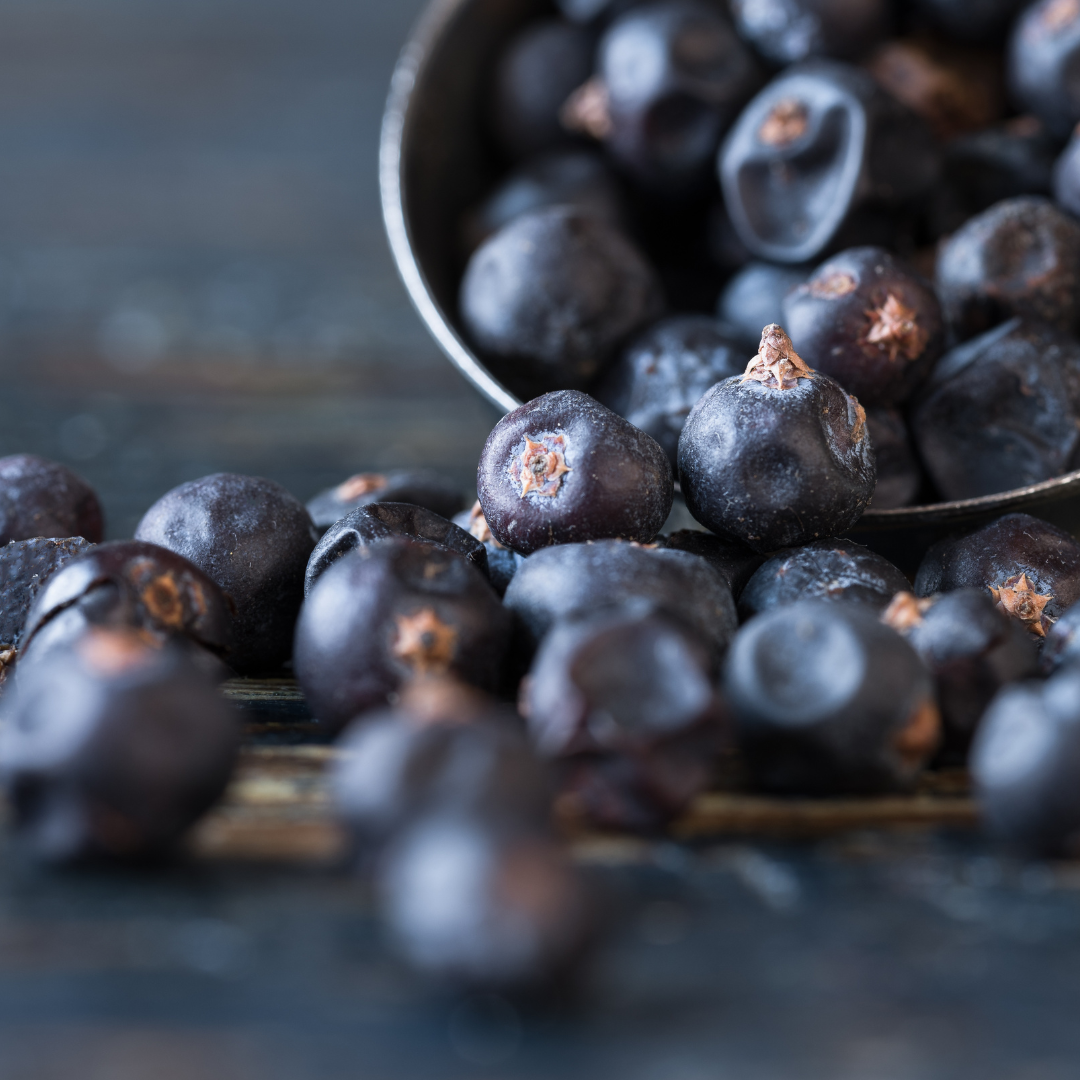
What makes Gin, 'Gin'?
Share

As we all know, gin is infused with botanical goodness, and full of flavor. But do you know what exactly goes in to your favorite gin?
We are zooming in on some of the most popular botanicals used in gins.
First up, the Juniper berry. The juniper berry is to gin what grapes are to wine.
Most famously used to give gin its distinctive flavor, so much so that it is required by law to be the core botanical in any drink that wants to call itself a gin.
The aroma and taste of juniper should be the signature note in any gin, both in the nose and on the palate.
Juniper and its super powers have been around long before we decided to distill it, with the earliest record of medical use dating back to 1500bc in Egypt where they were believed to cure tape worm infestations.
The Greeks would chew on the berries before Olympic events believing it would give them more stamina.
First a note. The name Gin derived from the Dutch word Jenever, which the English brought back to the UK in the 1700's, after the war. From there the British decided to experiment with their own home grown version. It would take years before it would become the spirit it is today, but practice makes perfect!
Besides making a delicious drink, this humble berry also has some major benefits.
Juniper berries are actually classified as a spice and has a long history of traditional use.
Some of its benefits are: they are high in nutrients and powerful plant compounds. They provide anti-inflammatory and antioxidant effects. They may also have antidiabetic properties. They have antibacterial and antifungal properties. Juniper berry oil is considered one of the most effective essential oils for dealing with anxiety related to inner trauma, exerting a positive effect on relaxation responses in the brain when inhaled.
The Capital Gin range is infused with real juniper berries, so... next time you enjoy a refreshing gin, you can think of it as self care :)
